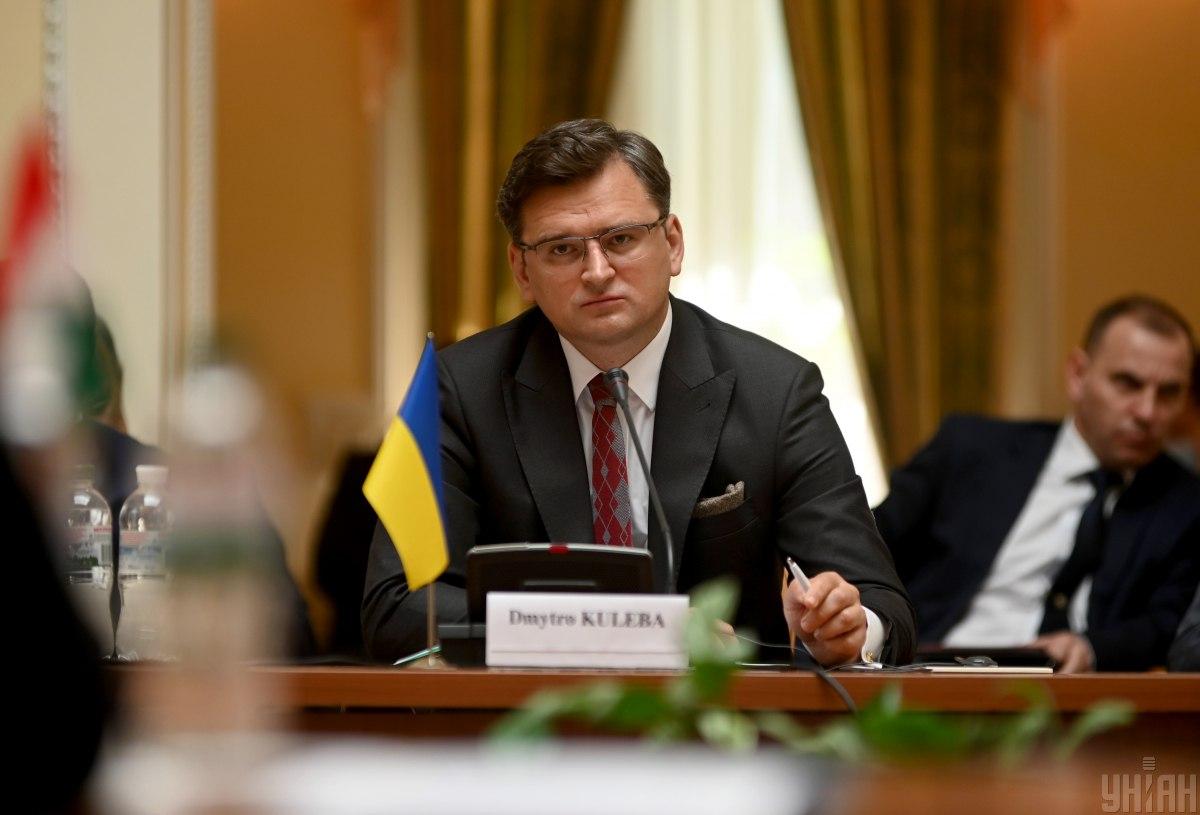
Ukrainian Foreign Minister Dmytro Kuleba says the Crimean Platform to end Russia's occupation of the Ukrainian peninsula will become one of the epicenters of Russia's hybrid war against Ukraine in 2021.
At an online briefing on Thursday, the top diplomat expressed satisfaction with Russia's reaction to the idea of creating the Crimean Platform, an UNIAN correspondent reports.
"The reaction is very nervous: they are trying to discredit the idea in every possible way. We've been receiving a lot of reports about this from various channels. They are nervous and making every effort to compromise this initiative," Kuleba said.
According to the minister, the truth is on the side of Ukraine.
Read alsoForeign Minister Kuleba lists seven diplomatic successes in 2020"We know we are doing a right and fair thing. We have a sufficient number of allies on our side to achieve success in the issue," Kuleba added.
Crimean Platform to end Russian occupation of the peninsula
At the end of July, Prime Minister Denys Shmyhal announced the finalization of the concept of the international platform, "Crimea is Ukraine." In the beginning, it is expected to be a consultative and advisory format, which will grow into a negotiation format.
On August 24, Foreign Minister Dmytro Kuleba announced that Ukraine would propose that Germany could join the future international platform for the end of the occupation of Crimea.
Read alsoThe aggressor must be punished: Why 2021 is important for Ukraine in international courtsOn September 23, Ukrainian President Volodymyr Zelensky, who participated in the general debate of the 75th session of the UN General Assembly, called on partners to join the international platform for the end of the Russian occupation of Crimea.
On October 6, the president announced that the European Union is ready to join the platform.
The summit on the launch of the Crimean platform may be held as early as May 2021.
The Platform will operate at several levels. The first, the highest one, is political level, which will involve heads of states and governments. The second level is that of top diplomats and defense chiefs, the third is inter-parliamentary level, and the fourth will involve non-governmental experts. An expert network will be created to enhance the effectiveness of government action, as well as to attract additional intellectual resources to the platform's work.
Russian occupation of Crimea
- Russia's annexation attempt took place in March 2014 after its troops had occupied the peninsula. An illegal referendum was held for Crimeans to decide on accession to Russia. De-facto Crimean authorities reported that allegedly 96.77% of the Crimean population had voted for joining Russia.
- On March 18, 2014, the so-called agreement on the accession of Crimea and the city of Sevastopol to Russia was signed in the Kremlin.
- The West did not recognize the annexation in response to which sanctions against Russia were introduced.
- Ukraine's parliament voted to designate February 20, 2014, as the official date when the temporary occupation of Crimea began.

